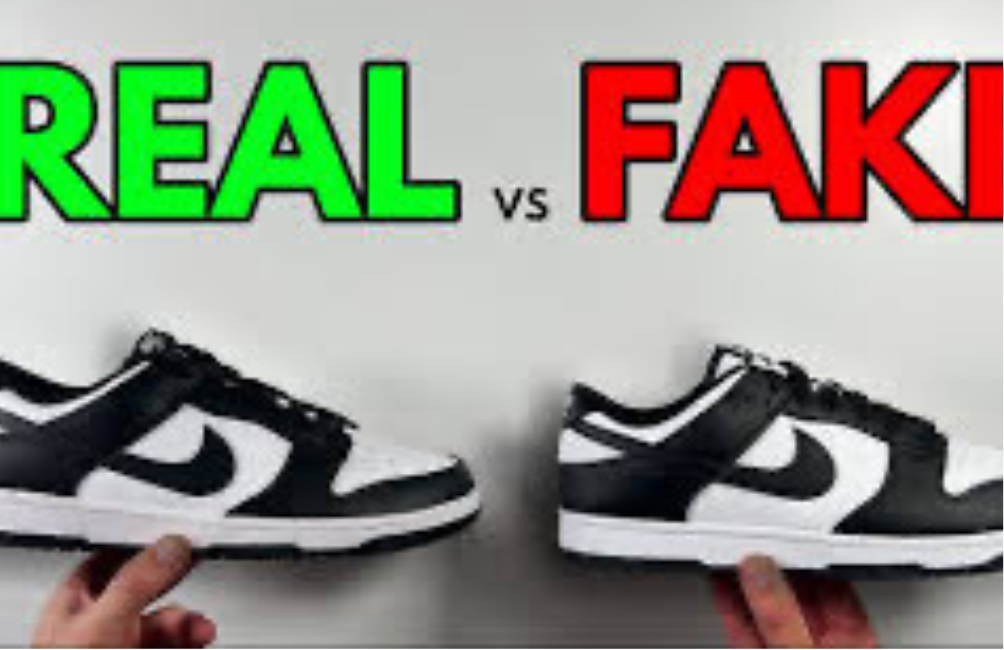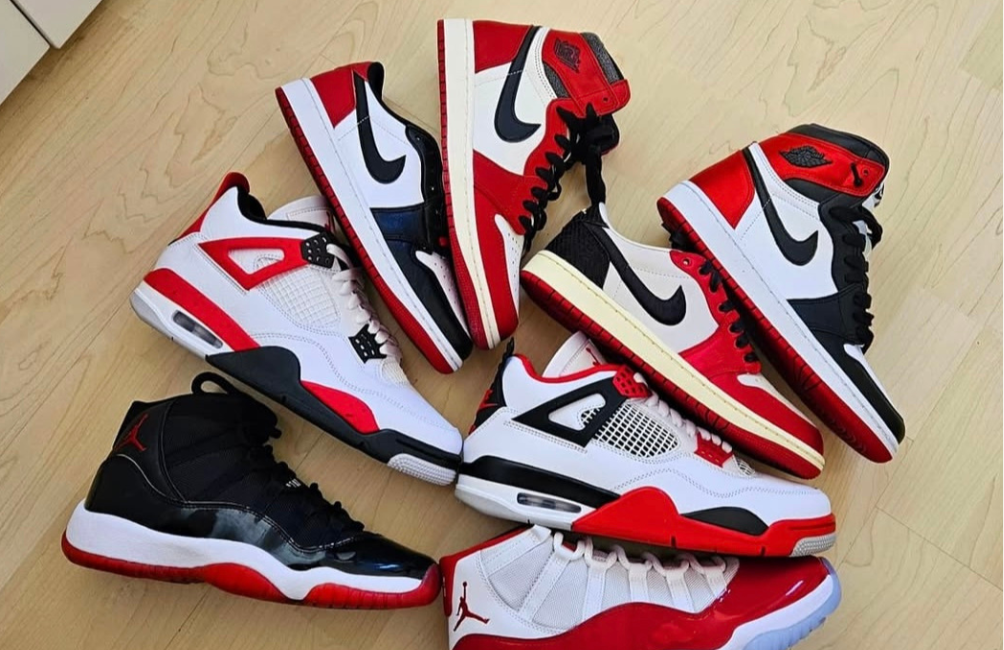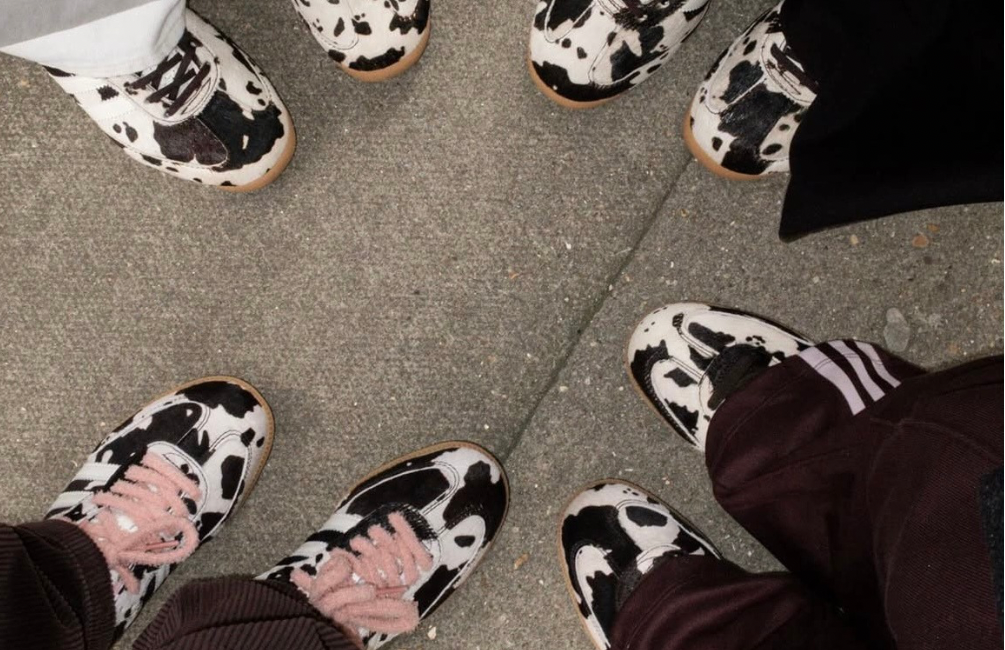
The Rise of Fake Footwear: How Counterfeit Sneakers are Impacting the Industry
Unravelling the Rise of Fake Footwear.
In the world of fashion, sneakers have transcended their functional purpose to become cultural icons. They symbolize status, style, and identity, with enthusiasts willing to go to great lengths to acquire the latest and most coveted pairs. However, alongside the rise of sneaker culture, there's been a parallel surge in the production and distribution of counterfeit sneakers, posing significant challenges for both consumers and brands.
The Sneaker Craze: A Cultural Phenomenon
Sneaker culture has experienced a meteoric rise over the past few decades. What began as a subculture among basketball players and hip-hop artists has evolved into a global phenomenon encompassing fashion, sports, and streetwear. Sneakers are no longer just footwear; they're collectibles, investments, and symbols of authenticity and exclusivity.
The Appeal of Authenticity
Authentic sneakers hold a special allure for enthusiasts. They represent craftsmanship, quality, and a connection to the brand's heritage. For many, owning a genuine pair of sneakers is a badge of honour, a tangible expression of their identity and lifestyle. However, as the demand for limited-edition releases and rare collaborations continues to soar, so too does the market for counterfeit sneakers.
The Proliferation of Fake Sneakers
Counterfeit sneakers, often referred to as "fake" or "replica" sneakers, are unauthorized replicas of popular shoe models. They are manufactured and sold with the intent to deceive consumers into believing they are purchasing genuine products. With advancements in technology and production techniques, counterfeiters have become increasingly sophisticated, making it challenging for consumers to distinguish between real and fake sneakers.
The Consequences of Counterfeiting
The rise of fake sneakers poses numerous challenges for both consumers and brands. From a consumer standpoint, purchasing counterfeit sneakers not only results in financial loss but also raises ethical concerns surrounding intellectual property rights and fair labour practices. Moreover, counterfeit sneakers often lack the quality and durability of their authentic counterparts, leading to dissatisfaction and disappointment among buyers.
For brands, counterfeiting represents a significant threat to their reputation and bottom line. It undermines the exclusivity and prestige associated with their products while depriving them of revenue and market share. Moreover, combating counterfeiters requires substantial resources and investments in anti-counterfeiting measures, including legal action, brand protection initiatives, and collaboration with law enforcement agencies.
The Role of Technology in Counterfeit Detection
In the ongoing battle against counterfeit sneakers, technology has emerged as a powerful ally. Brands are leveraging advanced authentication methods, such as holographic tags, RFID chips, and blockchain technology, to verify the authenticity of their products and protect consumers from purchasing fakes. Similarly, online marketplaces and resale platforms are implementing algorithms and machine learning techniques to identify and remove counterfeit listings.
Empowering Consumers Through Education
Despite these efforts, the prevalence of counterfeit sneakers continues to be a pressing issue. In response, there is a growing emphasis on consumer education and awareness campaigns aimed at empowering buyers to make informed purchasing decisions. By educating consumers about the tell tale signs of counterfeit sneakers, such as discrepancies in craftsmanship, packaging, and labelling, they can better protect themselves from falling victim to scams.
The Future of Sneaker Authentication
Looking ahead, the fight against counterfeit sneakers is likely to intensify as counterfeiters adapt to evolving technologies and market trends. Brands will need to remain vigilant and innovative in their approach to authentication, leveraging emerging technologies such as augmented reality and machine learning to stay one step ahead of counterfeiters. Moreover, collaboration between brands, governments, and industry stakeholders will be essential in addressing the root causes of counterfeiting and safeguarding the integrity of the sneaker market.
In conclusion, the rise of counterfeit sneakers represents a complex and multifaceted challenge for both consumers and brands. As sneaker culture continues to thrive, it's imperative that stakeholders work together to combat counterfeiting and preserve the authenticity and integrity of this beloved cultural phenomenon. By investing in technology, education, and collaboration, we can ensure that the sneaker saga continues to inspire and captivate enthusiasts around the world for years to come.


